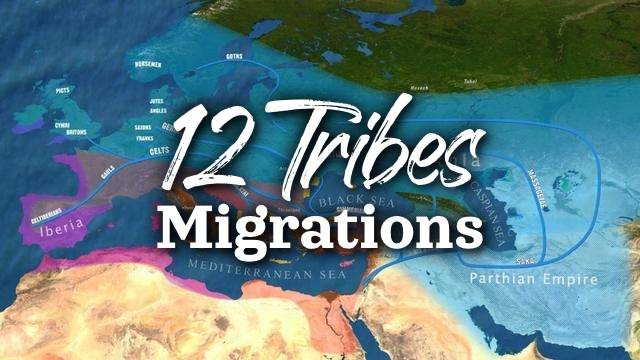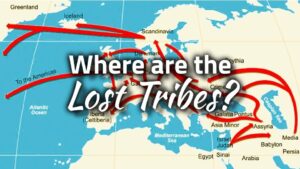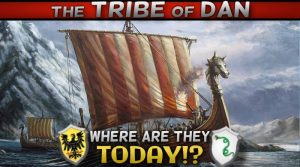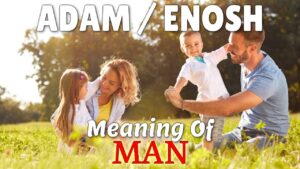Latest Posts
The Two "Men" of the Bible - Language Study
Psalm 8:4: What is man, that thou art mindful of him? and the son of man, that thou visitest him?
When we read scripture on the surface and naively trust our fallible modern day translations, we can miss the meaning of certain verses. For many centuries, scribes have ignored the plain meaning of words and their definitions, liberally distorting explicit the meaning of words in order to justify some end or church doctrine. If the meaning of the word goes against church doctrine, even if that definition was the author’s intent, translators will liberally bend or ignore it in order to compliment their biases and they will go far to fit their preconceived notions. Sometimes the differences are subtle, but other times the difference is extreme enough to be considered criminal (for example compare the NLT of Rom 4:1 with the Greek and then even the KJV)
Languages are complex, and when we take various different words, which are contextually distinct, and then translate them in a way which misrepresents the original message of the author, then we do that author a disservice. If John or Peter or Paul were trying to tell us something, and we take their words and make them into something else, we dishonour them and we corrupt their message. We are taking the words out of their mouth and fashioning them into something which they never said.
This has been a problem for longer than we think, in Jeremiah 8:8 we read that the scribes at Jeremiah’s time were also corrupting the Word of God. Many of the scribes at this time were Kenites, descendants of Cain, so we can observe their agenda in doing so. This might be the reason why certain Old Testament verses such as Genesis 4:1 are corrupted. In the New Testament there are some significant interpolations never present in the original manuscripts, such as the last portion of Mark’s final chapter and the narrative of the woman caught in adultery found in John. Beyond this, a number of verses in popular translations are corrupted far beyond their original language, thus obfuscating the author’s message. Some conclusive instances of this would be John 3:3 and 1 Thessalonians 3:2, and these are only two examples of such corrupted translations.
In order to understand scripture, we must consult the oldest manuscripts and read words in the way which both the writers and readers at the time understood them; by doing that we can understand the message they were trying to convey.
In the verse presented in this video’s opening, we see an excellent example of a passage where the meaning is lost. You may be surprised to learn that these two words translated as ‘man’ are separate words in the Hebrew, with contrasting meanings. The message of the verse is largely lost if they are both translated as man, but that is the state of our modern-day complacency.
Psalm 8:4:
“What is [enosh-]man (#582), that thou art mindful of him? and the son of [Adam-]man (#120), that thou visitest him?
In scripture, there are three words commonly translated as ‘man’. Today we will be looking at two of these, “adam” and “enosh” Let’s begin with Adam.
Adam is always said in reference to the descendants of Adam, and this is the race created in the opening accounts of Genesis, so in Genesis 5 we read: “this is the book of the generations of Adam”. Generations comes from the Hebrew word toledah which means descendant or descendants of, and the books of our scriptures are entirely concerned with the fate and history of Adam’s descendants.
The trees of Eden were not literal trees. The fact of the matter is this: that many idioms are lost if you do not share the vocabulary and lexicon of the original authors, thus making it easy for corrupt institutions to later twist the meanings of words in order to justify all manners of man-made doctrine; such as universalist and dispensationalist heresies. If someone from the past was transported to our modern world, with no knowledge of our modern day vocabulary, they would be at risk at taking our idioms literally too. These idioms are common to us, but to them they would potentially sound vague or even esoteric. Maybe a modern individual would mention having butterflies in their stomach and the one transported from the past would think someone actually swallowed insects. This is a simplified example, but the point is that to us the idiom is familiar and to them it is not.
Similarly, these ancient idioms were common to the Israelites, but to us they are esoteric. There are people on this planet who do not descend from Adam, which might be surprising for some to hear. I explore this at length in my two-part video series Adam Was not the First Man – Eden Explained. Israel Identified. If you have not yet seen that video, I recommend you watch it when you can. The presentation here depends on an understanding of that Adam is not the first man.
Moving on, the nature of pre-Adamics, or bastards or tares, etc, are in the Bible only described or mentioned as in to how they relate with the descendants of Adam. They are brought up in the context of warnings, warfare, immigration (which is punishment from God, see Deut. 28) , corruption, and prophecy.
Taking into account the language of the time and studying scripture, history and culture with that in min, will reveal even with only an intermediate overview of scripture, that trees are often used as metaphors for family trees, nations, or races of people. Fruit itself is an ancient Mesopotamian and Hebrew metaphor for sexual relations. If Adam was not the first man, which indisputable anthropology also reveals, and also scripture and prophecy, such as in the implications given of the Fallen Angels in Revelation 12, then the act of eating the fruit of another family tree and then bearing that shame in nakedness becomes readily evident.
There are many peoples who do not descend from Adam, and in the time of Moses they went by names such as as Nephilim, Rephaim, Zuzim, Kenizzites, Kadmonites, Girgashites. These peoples could not trace their parentage back to Adam or the sons of Noah, as the genealogies of Genesis reveals. The fact that the children of Adam mingled with them was enough to warrant a flood which punished Adam’s descendants.
The punishment was for the children of Adam, as sons are punished under the Law and not bastards (Hebrews 12), and for that reason the descendants of the Nephilim survived; groups such as the Rephaim and Anakim. These non-Adamic tribes survived the calamity and interacted with Noah’s descendants for generations afterwards. If the flood was universal, they simply would not have survived to participate in those interactions. The misunderstanding of Noah’s flood is all brought down to a misplaced translation of the Hebrew word eretz, which is often simply translated as land in Scripture.
To explain these discrepancies away, Judeo-Christians go as far as to hark back to wild old tales that Og of Bashan hid on the roof of the ark. Instead of resorting to tomfoolery we should instead equip Occam’s razor.
The descendants of Noah are listed in Genesis chapter 10, and an overview of this in corroboration with ancient and classical history identifies these peoples as kindred and of one stock; in contrast to those of other origin. Javan is identified as the Ionian Greeks by most credible scholars, and the race of Japheth being White would make him equal with all of his brethren. If one is White, they are all White. Otherwise, Noah’s wife commited adultery and is a fornicator. The sin of the Flood was racemixing, and God did not choose Noah only for his family to bring forth bastard shoots. Noah was not a fornicator. Therefore Ham and Shem were also of one unified seed.
Later, the descendants of Ham in the original white Egyptians (Mizraim) became corrupted in the Nubian invasions. Many others have also since become corrupted, and for the most part only Abraham’s descendants have been preserved through Jacob in modern-day Europe and the children nations (Canada, America, South Africa, Australia, etc). This is in fulfillment of Biblical prophecy. The fact that the other nations have since gone off into corruption and fornication does not discount that their original founders were White, a fact which an overview of history definitively reveals. This confirms that the Genesis 10 nations were all entirely White, coming from one seed.
The idea of Noah magically having three sons of different races is not scriptural, and is an absurd Catholic invention fabricated to justify universalism. If this had been the case, we would have expected Noah to have thrown his wife off the ark.
So whenever we see the noun Adam in our scriptures, it specifically refers to the descendants of Adam and to them only. The word (and this is important to add) also has another meaning as an adjective, where it is often used to reference someone who is ruddy, and as a verb refers to the act of blushing. Names are almost always used to identify someone or give a hint to their destiny. So even the word Adam in its definition has a racial implication.
The second word translated as “man” is enosh, which has a more versatile meaning than Adam:
H582
אנושׁ
‘ĕnôsh
BDB Definition:
1) man, mortal man, person, mankind
1a) of an individual
1b) men (collective)
1c) man, mankind
From H605; properly a mortal (and thus differeing from the more dignified H120)
The word has more than one quality, and with a knowledge that Adam was not the first man the context of certain passages reveals an additional dimension. While we explore the meaning of this word, it is imperative to emphasize that Enosh can refer both to Adamic men, (meaning men who descend from Adam), but it can also refer to non-Adamic men, (men who do not descend from Adam).
Enosh is related to and derived from the word anash, (#605), which means frail or feeble. This is part of the reason why the word enosh was then used to refer to a man as a mortal being, and any standard dictionary or lexicon agrees. So we see can then see the contrast between Adam and enosh in places such as Psalm 8:4, a verse we presented as a heading for this essay, and the verse is presenting a message that was lost with modern translations that identically translated the two distinct Hebrew words.
It’s important to understand that the Hebrew language had a limited vocabulary compared to our modern day tongues, and therefore the meaning of words could change depending on the context of the sentence that they were placed in. For example, the Hebrew word ‘yom’ can mean day (as we see in Genesis) but it can also contextually refer to a year, season, epoch, age, yesterday, and more. The word is used in these various different contexts throughout the Old Testament. It is not difficult to deduce that the creation account of Genesis was not seven literal days, despite the poetic and distinctively sabbatical allegory it is illustrated through.
When we see Adam in scripture, it always refers to the descendants of Adam. The word enosh is less absolute sometimes it does refer to Adamics and other times it doesn’t, with such being gleaned from the context of the sentence. When in reference to those of Adam, it’s imparting less dignified stance and portrays the mortal side of man; specifically that of a fleshly nature and worldly pursuits. In these instances, its purpose is to provide a contrast between worldly and less worldly individuals.
This distinction can be used in many places, and the word enosh is also apparently sometimes used as a contrast between a well known figure and those lesser known. The men of Abraham’s house who accompanied him from Haran to Canaan, several hundred, were referenced with the word. However, that may be because Abraham was chosen out of a wider pagan society. But interestingly, it is also used in Genesis when speaking of the angels who assisted Lot, there giving contrast between the sons of Adam and those of this other race. Therefore word is clearly versatile, and its definitively main purpose is to give contrast. Adamic men, and even apparently angels, may both be referred to as enosh, despite being created by God. It is also apparent that both can fall victim to a fleshly nature, as we see of many men today and as we saw in the fallen angels of old.
Sampling of examples from Genesis: The men of Abraham’s house: Genesis 14:24, 17:23, 17:27.
The men who were apparently angels which visited Abraham: Genesis 18:2, 18:16, 18:22.
The same men who were angels, apparently, who visited Lot in Sodom: Genesis 19:5, 19:8, 19:10, 19:12, 19:16. Note on 19:12: Angels are not omniscient.
The men of Abraham’s kindred in the city of Nahor, when he sent for a wife for Isaac: Genesis 24:13.
The men of Abraham’s house again: Genesis 24:54.
The men of Abraham’s house in Padanaram once again, when Jacob went there for a wife: Genesis 29:22.
——————
Now let’s focus on the other party, that being non-Adamics:
Understanding that Adam was not the first man, there is another contrast which the word enosh can be used to provide a distinction between two groups. This is exemplified in the use of the word enosh when used to refer to groups which did not descend or who mixed apart from the Genesis 10 nations.
This distinction is made because there is a dual nature between spirit and flesh which is a quality unique to the descendants of Adam. Paul explains in various places, that those of Adam are sown a corruptible body and raised a spiritual one. Because of this dual nature, there is a contest between the will of the flesh and that of the spriit, as Paul illustrates in his epistle to the Galatians. Then in Hebrews, Paul states that is appointed for man to “die once, then to judgment.” (Hebrews 9:27). While the purpose here is not to provide a complete overview of the dual nature of Adamic men, it is presented in various essays available on our friend’s website, Christogenea.
When Adam was created, he was given the spirit of God and promised eternal life. Such is done by clinging to the Tree of Life, which represents the genetic line of Adam with Christ as its root. If you do not break your vessel, you cling to it. All the seed of Israel has an expectation of this immortality in spite of their behavior (all are saved, Is. 45), but each will be rewarded and weighed according to their works, some to everlasting life and some to everlasting shame (Daniel 12).
1Co 3:15 If the work of anyone burns completely (representing his works in this life, being burnedd completely ostensibly meaning having zero good works), he will suffer loss, but he himself will be preserved, although consequently through fire.
In the Wisdom of Solomon we read:
Wisdom 2:23: “For God created man (Adam) to be immortal, and an image of His own eternity.”
And then in the Psalms:
Psa 32:2: “Blessed is the man [Adam #120] unto whom the LORD imputeth not iniquity, and in whose spirit there is no guile.”
Adamic men are born with this dual nature, and each day are given a choice in their conduct. We can live in accordance with the spirit, and display ourselves in a cordial manner worthy of that station. Thus earning the recognition of our heritage as Adam (#120). In other times being susceptible we may yield to the flesh, living carnal lives and earning a name deserving of being called enosh (#582).
Mat 26:41: Stay awake and pray, that you would not enter into trial! Indeed the spirit is willing but the flesh is weak!” (CNT)
Rom 8:5-6 For they who are in accordance with the flesh, strive after the things of the flesh; and they who are in accordance with the Spirit, the things of the Spirit. Indeed the purpose of the flesh is death, but the purpose of the Spirit, life and peace. (CNT)
The other type of “man” upon this earth has only one nature and is restricted to the flesh: contained within it until death with no regeneration, [because they were never given the breath of life, they therefore have no propitiation given that the seed is not in them – as John explains in his first epistle]. These non-Adamics are therefore always called enosh, and never adam. For one: they don’t descend from Adam, and then secondly: they demonstrate this fact through their lifestyle as they cannot mind spiritual things. The law is spiritual, as Paul explains in his epistle to the Romans (7:14). Any bastard is a broken cistern which cannot hold the spirit.
Joh 8:23 And He said to them: “You are from of those below; I am from of those above. You are from of this Society; I am not from of this Society. (CNT)
Only sons of Adam can be adam (#120), but they can also be referred to as enosh when used as a contrast of fleshly minded men, among other things. But those of seedlines and groups that cannot be traced back to Noah and his sons without unadulterated lineage, they are always enosh no matter their actions or works may be. These are entirely mortal, and deciphering which purpose of the word is being used when can only be gleaned through contextual observation.
Jude described the nature of this mortality in his short epistle: “...clouds they are without water, carried about of winds; trees whose fruit withereth, without fruit, twice dead, plucked up by the roots;” (KJV)
We can remember that water can represent the contents of one’s vessel, as seen in Proverbs 5:15 and the words of Christ in John 3. These enosh are clouds without water, and clouds without water are nothing more than a collection of dust. When they die, they do not have a spirit which returns to its Maker, a destiny Solomon illustrated for adam in Ecclesiastes. Trees definitively represent people and bloodlines, as seen in Genesis, Ezekiel, and the words of Christ and also those of John the Baptist, etc. A tree which is without fruit and twice dead is a tree that cannot expect any participation in the regeneration which is exclusive to the people of Israel, and they are therefore entirely mortal. Because of this entirely fleshly nature, we understand why non-Adamics are referred to as enosh but never as adam. Now if such enosh, which are tares, are participating Catholics or Protestants, this does not make them spiritual. Neither of those groups represent apostolic Christianity, and such enosh in any so-called church would crucify Christ a second time if they ever saw Him and heard the contents of His exclusivity message.
The distinction between Adam and Moses is found multiple times throughout the Psalms and the books of the prophets. In the 90th Psalm, attributed to Moses, we read:
Psalm 90:1 “Lord, thou hast been our dwelling place in all generations. 2 Before the mountains were brought forth, or ever thou hadst formed the earth and the world, even from everlasting to everlasting, thou art God. 3 Thou turnest man to destruction; and sayest, Return, ye children of men. 4 For a thousand years in thy sight are but as yesterday when it is past, and as a watch in the night.”
“3 Thou turnest man (enosh) to destruction; and sayest, Return, ye children of men (Adam).”
Both enosh and Adam are singular in the original. The word for destruction is dust, therefore we can understand Moses to be saying in His praise to God: “You turn mortal man [enosh] to dust; and You say, Return, ye children [or sons] of Adam.”
All men die, but the promises of resurrection are novel for the children of Adam; and was not made to the Girgahsites or to the Kennizites, or to any other nation which is not branched from Adam, but is instead rooted in another tree. [The tree of the Knowledge of Good and Evil].
Once even these simple words are translated, a whole new level of meaning is understood. Not even speaking of other more explicit words, such as son, bastard, fornication (pornea), society (oikumene), race (genea), and more; all equally misrepresented. As John recorded Christ as explaining in his Gospel, you are either born from above, or from below.
In our modern day humanist and secular society, we have been deceived by the enemy, who has manipulated our inherent altruism into accept moral relativist ideals. God is not a moral relativist. Their lies are built on placation and secular ideals in order to justify their exploitation of society. Because of the dragon’s deception, many would believe that God is somehow immoral for upholding these natural laws of origin and destiny. In reality, we cannot force God to adopt or have parentage over anything that did not originate with Him, and we cannot force Him to abandon His own morals for our own shortsighted ones. Christ said that He will pluck every plant which His father had not planted, hearkening back to Solomon’s words that bastard slips sprung from adulterated trees will be rooted out. As the blind man at Bethsaida who was healed by Christ is recorded as saying in Mark’s gospel: there are many trees that walk on this Earth. But it is Christ who revealed to us that not all of these have their roots in the same place.
The fact of the matter is: when we study scripture and its accompanying history correctly, we find the narrow way. The narrow way shows us that God could not be any more moral and loving than to uphold His natural law for the sake of the people whom He created and made promises to. The state of our modern world and our present afflictions and burdens, are in large part the result of our prophetic ignorance of this plain fact. Only in recent memory have our “ideals” changed, but God does not change. We can also further understand God’s indignation held towards the Edomites and why. We can understand the reasoning behind the consistent behaviour of these groups, and we ca see the fulfillment of the promises made to Israel throughout history.
These are promises which were not broken, for when the Israelites were dispersed in the Assyrian and Babylonian captivities, many nations sprouted from them, as promised. It was during this time more than any other that God’s promise to Abraham that his seed would become many nations was fulfilled: thee Scythians, Kimmerians, Thracians, and more. Yahweh promised the preservation of Israel, and He did not lie.
There were also migrations in the days of Moses and during other disparate times. The classical writers attest to this, and neither did they lie. The Lacedemonians realization of this bond was never disputed by the Judeans in the time of the Maccabees. We see such a kindred in the Danaan Greeks as well, and Paul recognized the station of the Trojan Romans of Zerah-Judah, and more. In prophecies such as those found in Ezekiel 34, these peoples are described as lost and scattered sheep. Isaiah prophesied in the final chapter of his book that they would travel northwest, to Tarshish, Pul, Lud, Tubal, and Javan. These prophecies given by Yahweh certainly did come true, and Yahweh reveals that He is God.
There are two types of men, those with a spirit and those without. One is burdened by his flesh but is able to transcend it and live in the spirit [and we as Adamic men should walk in the spirit, following in the footsteps of Christ]. Meanwhilee, the other is limited to live a mortal life and can never transcend the flesh.
Adam and Enosh. Different words. Different meanings.








